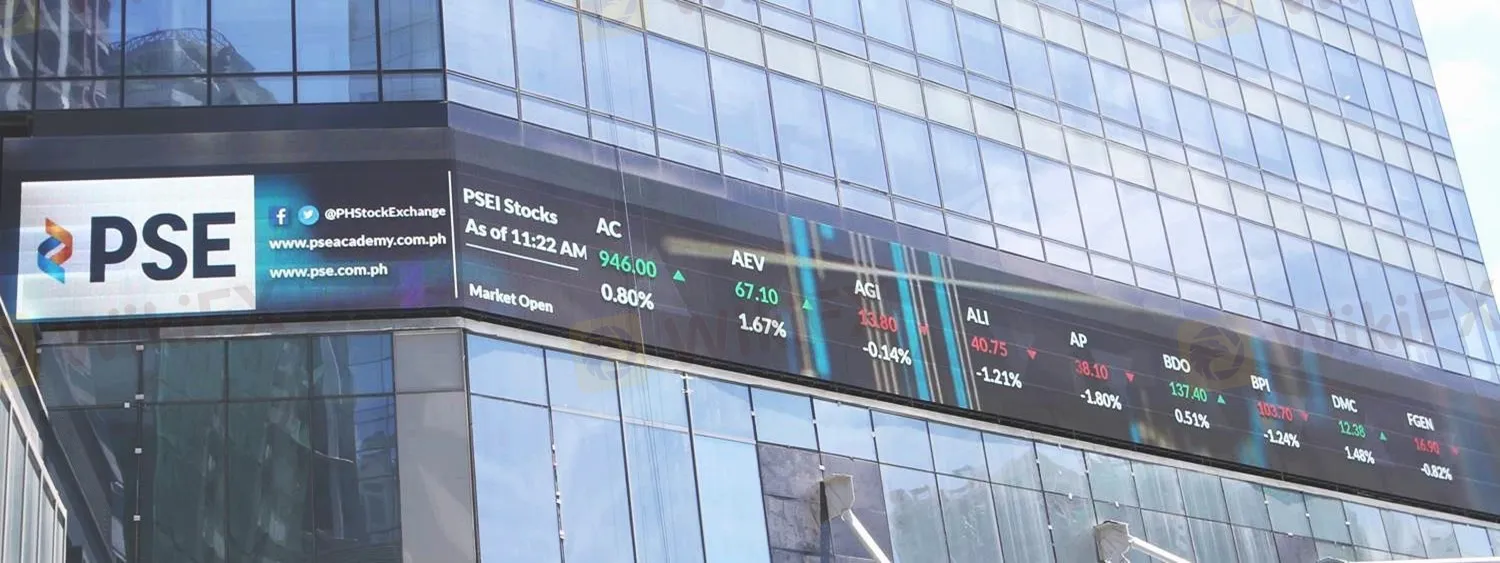简体中文
繁體中文
English
Pусский
日本語
ภาษาไทย
Tiếng Việt
Bahasa Indonesia
Español
हिन्दी
Filippiiniläinen
Français
Deutsch
Português
Türkçe
한국어
العربية
The Philippines Closes Financial Market Due to the Pandemic
Abstract:March 16th at night, the Philippine Securities Exchange made an announcement to temporarily halt trading of stocks, securities and currencies starting from March 17th until further notice, making the Philippines the first country to shut financial market under the impact of the global coronavirus outbreak.
March 16th at night, the Philippine Securities Exchange made an announcement to temporarily halt trading of stocks, securities and currencies starting from March 17th until further notice, indicating the Philippines the first country to shut financial market under the impact of the global coronavirus outbreak. Previously, due to the rising number of confirmed cases in the country, President Duterte decided to expand the lockdown of the Greater Manila to the whole Luzon Island, which directly led to the financial market shut down.

The Philippine Stock Market, having slumped over 30% so far this year, is among Asias stock markets suffering the largest decline. On Monday, a US-listed ETF pegged to Filipino stock market was down for a record 19.5%.
Analysts find the news of Filipino financial market shut-down unsurprising amid the raging pandemic. Concentrating on containing the coronavirus outbreak, the government obviously prefers less distractions from the financial market.
Behind Filipino financial market shut-down, its clear that a global recession is looming large. Of the four US market trading curbs in history, three happened this month. ECB Chair Lagarde previously said the current situation may rival the 2008 global financial crisis triggered by excessive subprime loans, while Singapore's Prime Minister Lee Hsien Loong believed this time could be even worse.

The Fed‘s 100bp emergency rate cut earlier that aimed to boost market liquidity was hardly effective, but fueled market’s panic instead. On one hand, this means the Fed has slashed rate to a historical low, while the “battle” has just begun; on the other hand, the market expected the Fed to announce rate cut after policy meeting on March 18th , and the earlier-than-expected rate slash created an even more bearish market outlook, leading to the inevitable clash of US stock market. Right now, investors are increasingly worried that the Fed is out of ammunition in face of greater difficulties.

The virus outbreak has been a major reason for the US stock market clash and trading curb, while the recent oil price war has been a trigger. Oil slump has not only hurt Russia and Saudi Arabia, but also dealt a heavy blow on the new energy companies in the US. Such private businesses have become a main part of international oil market and US stock market after the shale oil revolution, and due to the high extraction cost and the characteristics of the energy industry, oils plunge has been disastrous for them, so the avalanche of stock market became inevitable.
But with all that being said, the financial crisis didnt just break out overnight, and the epidemic and the oil price volatility were only the last straw, with the root cause being the systematic risk of financial market.
How did the financial markets build another layer of bubbles after the subprime mortgage crisis in 2008? Stay tuned as WikiFX brings you more insights and analysis on the current economic situation.
Disclaimer:
The views in this article only represent the author's personal views, and do not constitute investment advice on this platform. This platform does not guarantee the accuracy, completeness and timeliness of the information in the article, and will not be liable for any loss caused by the use of or reliance on the information in the article.
Read more

Weekly Column: The time of Mutable Madness
Weekly Column: The time of Mutable Madness

Why Indian Market Is Becoming Bullish?
According to the data from NSE, foreign investors have poured over Rs 1.01 lakh crore into the Indian equity markets since the beginning of November.
WikiFX Broker
Latest News
Top 10 Trading Indicators Every Forex Trader Should Know
ASIC Sues Binance Australia Derivatives for Misclassifying Retail Clients
WikiFX Review: Is FxPro Reliable?
Malaysian-Thai Fraud Syndicate Dismantled, Millions in Losses Reported
Trading frauds topped the list of scams in India- Report Reveals
YAMARKETS' Jingle Bells Christmas Offer!
AIMS Broker Review
The Hidden Checklist: Five Unconventional Steps to Vet Your Broker
WikiFX Review: Something You Need to Know About Markets4you
Revolut Leads UK Neobanks in the Digital Banking Revolution
Currency Calculator


